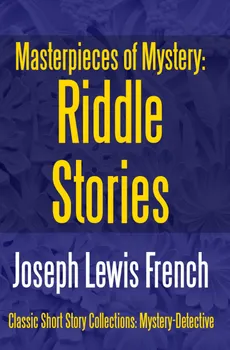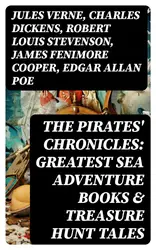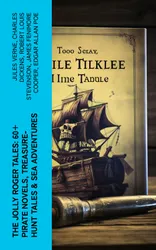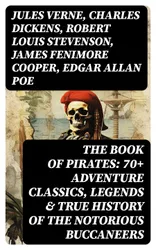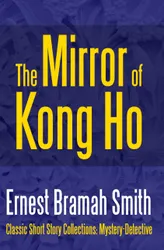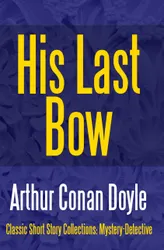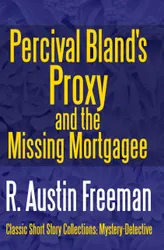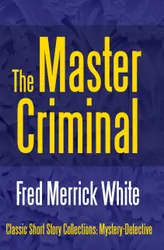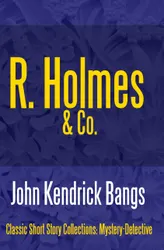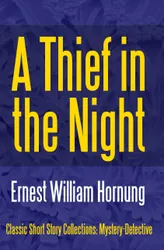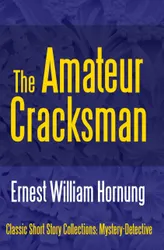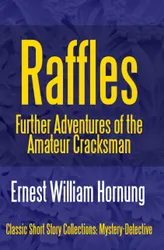Edited by Joseph Lewis French, this collection of 9 riddle stories includes "The Mysterious Card" and its sequel by Cleveland Moffett, "The Oblong Box" by Poe, "A Terribly Strange Bed" by Wilkie Collins, "The Lost Room" by Fitz-James O'Brien and others selected as masterful examples of the genre by the editor. He says in the forward:
"A distinguished American writer of fiction said to me lately: 'Did you ever think of the vital American way we live? We are always going after mental gymnastics.' Now the mystery story is mental gymnastics. ... The stories of this collection cover a wide range and are the choice of reading in several literatures."
THE
MYSTERIOUS CARD (excerpt)
RICHARD Burwell, of New York, will never cease to
regret that the French language was not made a part of his education.
This is why:
On the second evening after Burwell arrived in
Paris, feeling lonely without his wife and daughter, who were still
visiting a friend in London, his mind naturally turned to the
theatre. So, after consulting the daily amusement calendar, he
decided to visit the Folies Bergère, which he had heard
of as one of the notable sights. During an intermission he went into
the beautiful garden, where gay crowds were strolling among the
flowers, and lights, and fountains. He had just seated himself at a
little three-legged table, with a view to enjoying the novel scene,
when his attention was attracted by a lovely woman, gowned
strikingly, though in perfect taste, who passed near him, leaning on
the arm of a gentleman. The only thing that he noticed about this
gentleman was that he wore eye-glasses.
Now Burwell had never posed as a captivator of the
fair sex, and could scarcely credit his eyes when the lady left the
side of her escort and, turning back as if she had forgotten
something, passed close by him, and deftly placed a card on his
table. The card bore some French words written in purple ink, but,
not knowing that language, he was unable to make out their meaning.
The lady paid no further heed to him, but, rejoining the gentleman
with the eye-glasses, swept out of the place with the grace and
dignity of a princess. Burwell remained staring at the card.
Needless to say, he thought no more of the
performance or of the other attractions about him. Everything seemed
flat and tawdry compared with the radiant vision that had appeared
and disappeared so mysteriously. His one desire now was to discover
the meaning of the words written on the card.
Calling a fiácre, he drove to the Hôtel
Continental, where he was staying. Proceeding directly to the office
and taking the manager aside, Burwell asked if he would be kind
enough to translate a few words of French into English. There were no
more than twenty words in all.
"Why, certainly," said the manager, with
French politeness, and cast his eyes over the card. As he read, his
face grew rigid with astonishment, and, looking at his questioner
sharply, he exclaimed: "Where did you get this, monsieur?"
Burwell started to explain, but was interrupted
by: "That will do, that will do. You must leave the hotel."...
Joseph Lewis French (1858–1936) was a novelist, editor, poet and newspaper man. The New York Times noted in 1925 that he may be "the most industrious anthologist of his time." He is known for his popular themed collections, and published over twenty-five books between 1918 and his death in 1936. He founded two magazines, The New West (c. 1887) and The Wave (c. 1890). Afterwards he worked for newspapers "across the country" contributing poetry and articles. He struggled financially, and in 1927 the New York Graphic, a daily tabloid, published an autobiographical article they convinced him to write, entitled "I'm Starving – Yet I'm in Who's Who as the Author of 27 Famous Books."
